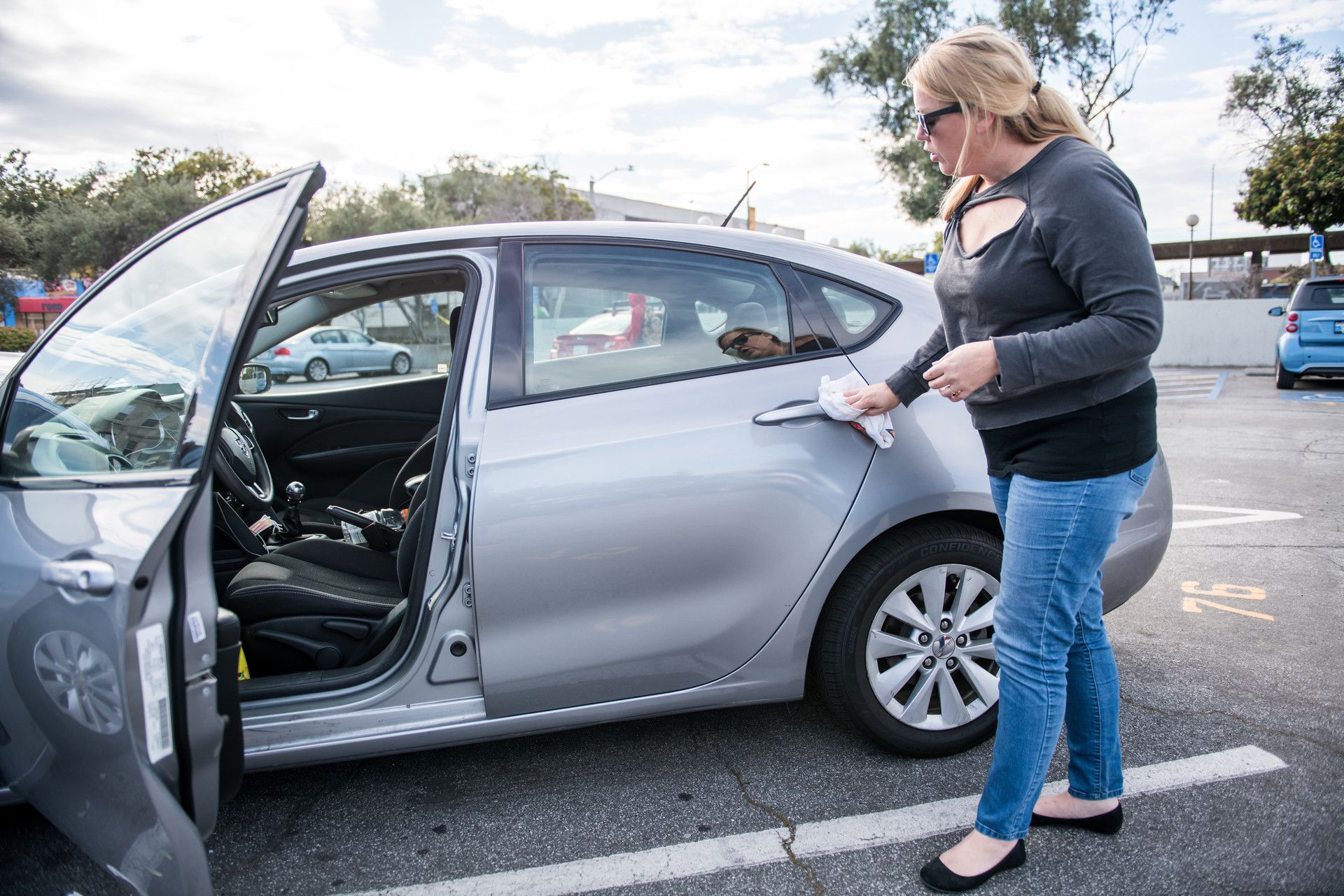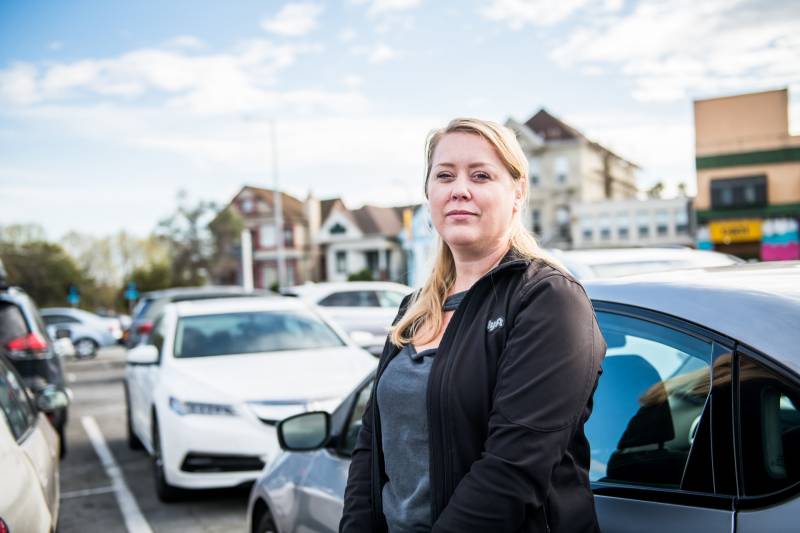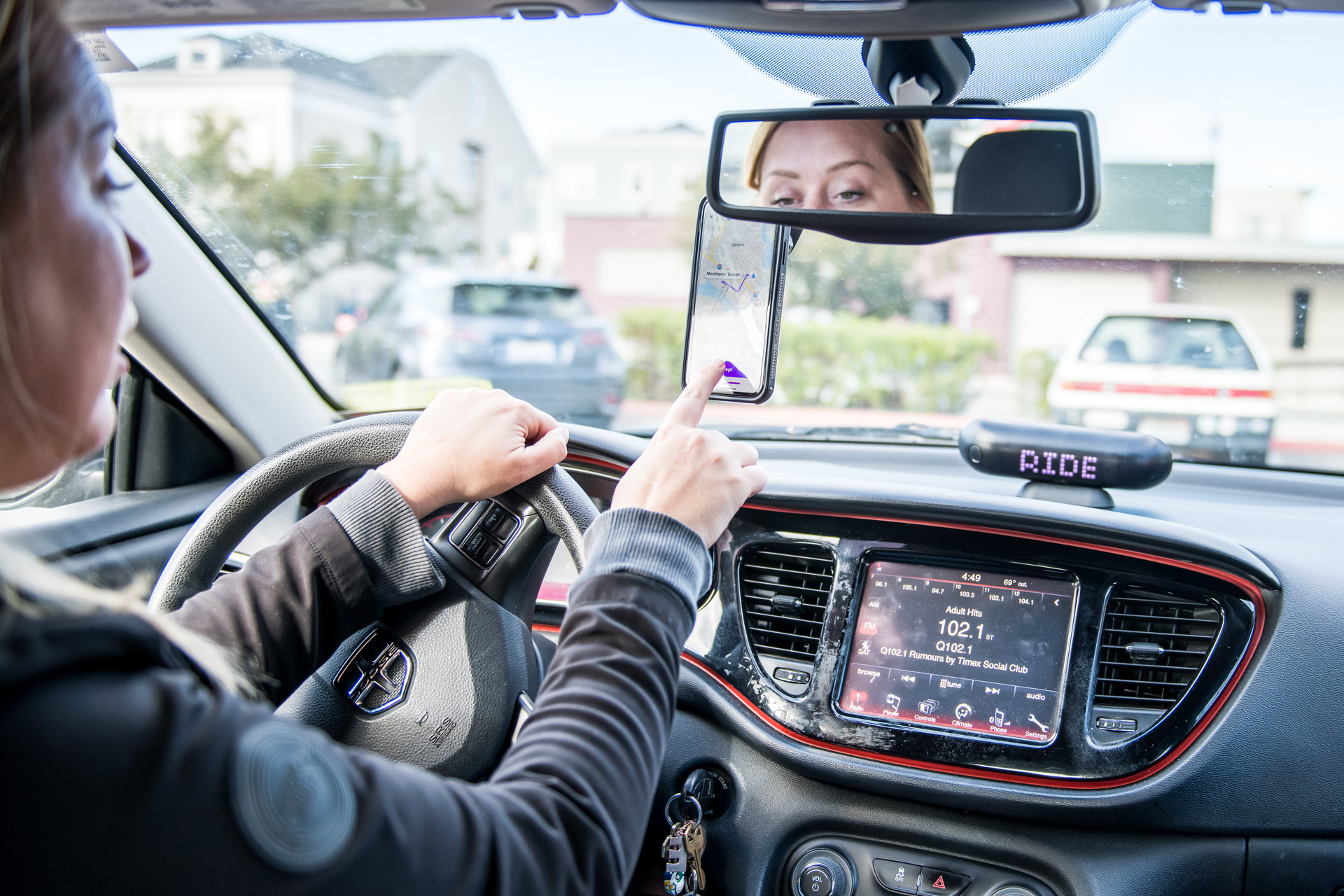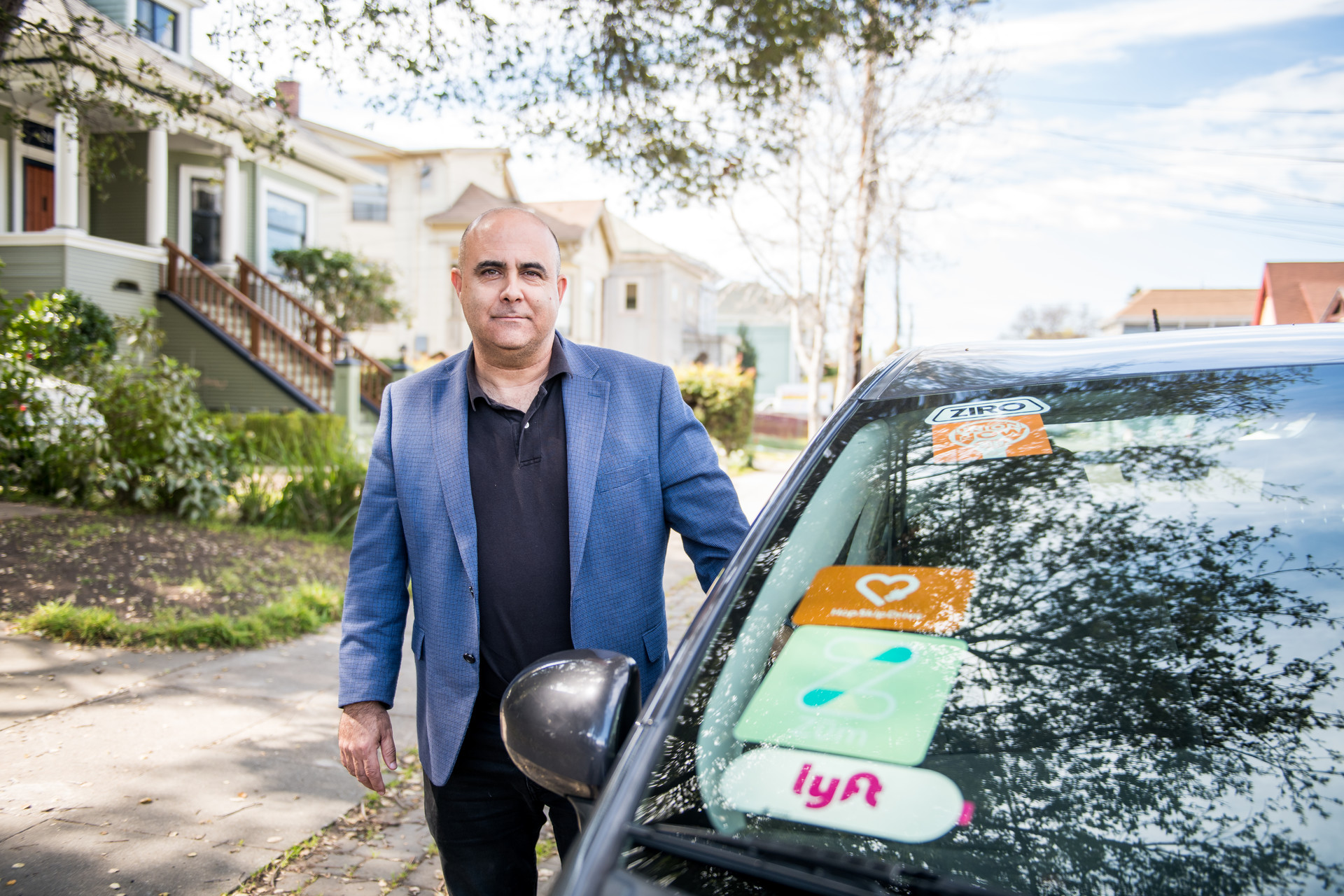Recently, business has been exceptionally slow for Erica Mighetto, who drives for Uber and Lyft in San Francisco. Even so, she's still out there looking for passengers, and has taken steps to prepare for whatever rides do come along.
When she stops to pick me up in Glen Park earlier this week, Mighetto immediately rolls down the window before I get into her car and asks if I want her to put on a surgical mask.
Mighetto’s car is immaculate. There’s a lingering whiff of bleach from the disinfectant she has been religiously rubbing on the surfaces between passengers. Up front, behind the gear shift, she has a stack of pink surgical masks, which she said she received from a doctor at a hospital, who suggested she hand them out to any coughing passengers.
Late last week, she received messages from both Lyft and Uber telling her to keep her car clean and to stock up on hand sanitizer, which she found most stores had sold out of. A few days later, Lyft said it was providing sanitizer to drivers.

The hospital doctor Mighetto consulted with said she should use a mask as well, but she remains hesitant to wear one when picking up passengers, concerned it will freak them out. Everyone is already on edge, she says.
Mighetto is scared, too. She doesn’t want to be on the road driving, which she thinks could be particularly dangerous for her.
“I have a heart condition called supraventricular tachycardia,” she tells me. “Ten years ago I had surgery, and I haven’t been monitored since then. I don’t have a primary care practitioner or a cardiologist.”
“It’s really nerve-wracking to be out here driving people around,” she adds.
But coronavirus fears aside, Mighetto has little choice but to continue driving this month; she needs the money.


